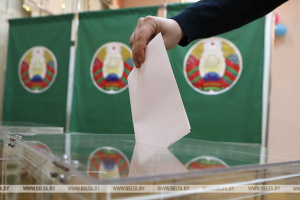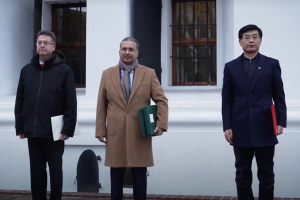
First decision on merits in ‘Ukraine v. Russia’ interstate case - Maliuska
He said this in an exclusive commentary to an Ukrinform correspondent shortly after the ruling was announced in the Grand Chamber of the Court in Strasbourg.
"This is a truly historic day. It is the first judgment on the merits in the interstate case of Ukraine against Russia, in this case, concerning Crimea. The judges examined the circumstances from February 2014 to September 2022, that is, until the time when Russia ceased to be a member of the European Convention," the minister said.
According to him, Ukrainian lawyers did not expect the announcement to last for half an hour. The chief judge needed more time to cite a huge list of articles of the European Convention that were violated by Russia.
"It actually took longer than expected to announce the decision due to the large number of violations found. The volume is just insane, so this is definitely a success," emphasized Maliuska.
According to him, these violations include, in particular, enforced disappearances of people, crimes against Crimean Tatars, as well as imprisonment, raids and searches of private homes, and detentions of religious leaders. Crimes against journalists were also mentioned.
"This is pressure and harassment of non-Russian media, primarily Ukrainian and Crimean Tatar media. These are the same actions of intimidation and pressure on journalists. This is a ban on public gatherings and the same detention of organizers of such public gatherings," the minister added.
That also related to violations related to the ban on the Ukrainian language in schools and the right to freedom of movement due to the illegal establishment of the border between Crimea and Ukraine.
"Thus, the court recognized that Russian law is not applicable on the territory of Crimea, despite the fact that Russia was justifying the opposite by its laws adopted in the Russian Federation," Maliuska summarized.
As reported, the European Court of Human Rights today issued a ruling in the first interstate case "The case of Ukraine v. Russia (re Crimea)," recognizing that the aggressor state committed multiple human rights violations in temporarily occupied Crimea.




